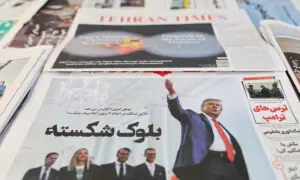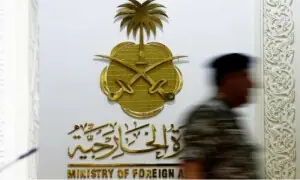Risk of Rs500b mini-budget looms as govt fails to meet IMF demands
3 min readThe International Monetary Fund (IMF) has called for a mini-budget in Pakistan to address shortfalls in tax revenue, sources said on Saturday as the deadline for filing income tax returns ended last month.
In September, the IMF’s Executive Board approved a new $7 billion, 37-month loan agreement for Pakistan that requires “sound policies and reforms” to strengthen macroeconomic stability. The approval released an immediate $1 billion disbursement to Islamabad.
The crisis-wracked South Asian country has had 22 previous IMF bailout programs since 1958.
Such a demand has been made to help meet the tax targets set by the government. Based on the IMF’s advice, Pakistan will need to introduce two to three mini-budgets during the current fiscal year. Discussions during recent virtual negotiations also addressed the revenue shortfall.
The situation has been exacerbated by a reported shortfall of Rs190 billion, making compliance with the IMF agreement increasingly challenging for Pakistan.
Sources added that taxpayers in Pakistan would be required to pay additional taxes on customs duties, sales tax, income tax, and other levies. The mini-budget is expected to be utilised to improve tax administration.
The tax collection authority plans to rely on the mini-budget to enhance tax collection in the first quarter of the fiscal year. The size of the mini-budget could potentially reach Rs500 billion rupees during the current fiscal year.
Current estimates suggest that the board would need an additional Rs60 billion to meet its targets. There are possibilities that this process may need to be repeated in the upcoming or subsequent quarters, further indicating the financial challenges faced by the government.
Pakistan’s tax target of Rs13 trillion was initially based on an anticipated 17% growth in imports; however, actual import growth has only reached 8% in the first quarter due to weakened demand. Additionally, the growth in large-scale manufacturing has stagnated at 1.3%, falling short of the expected 3.5%.
The FBR has already recorded a tax shortfall of Rs90 billion for the first quarter, and internal assessments suggest that this shortfall could escalate to between Rs350 billion and Rs400 billion by December.
Also, read this
Pakistan’s economy continuously improving but challenges remain, says IMF representative
Aurangzeb vows no harassment in tax collection, aims for IMF programme conclusion
Pakistan fails to meet IMF cash surplus target, shortfall reaches Rs182b
Given the disappointing results from the first quarter and the early indicators for the second quarter, the government now faces a critical decision: either revise the assumptions underlying its fiscal framework or continue pursuing targets that may prove unrealistic.
On Friday, the finance ministry rejected any possibility of a budget adjustment midway through the fiscal year.
In a statement, the ministry stated that the economic indicators, particularly inflation, growth in large-scale manufacturing, and import trends, “align” with government projections and expectations. “There is no justification for adjustments to the budget at this stage,” the spokesperson said.
For the latest news, follow us on Twitter @Aaj_Urdu. We are also on Facebook, Instagram and YouTube.

























Comments are closed on this story.